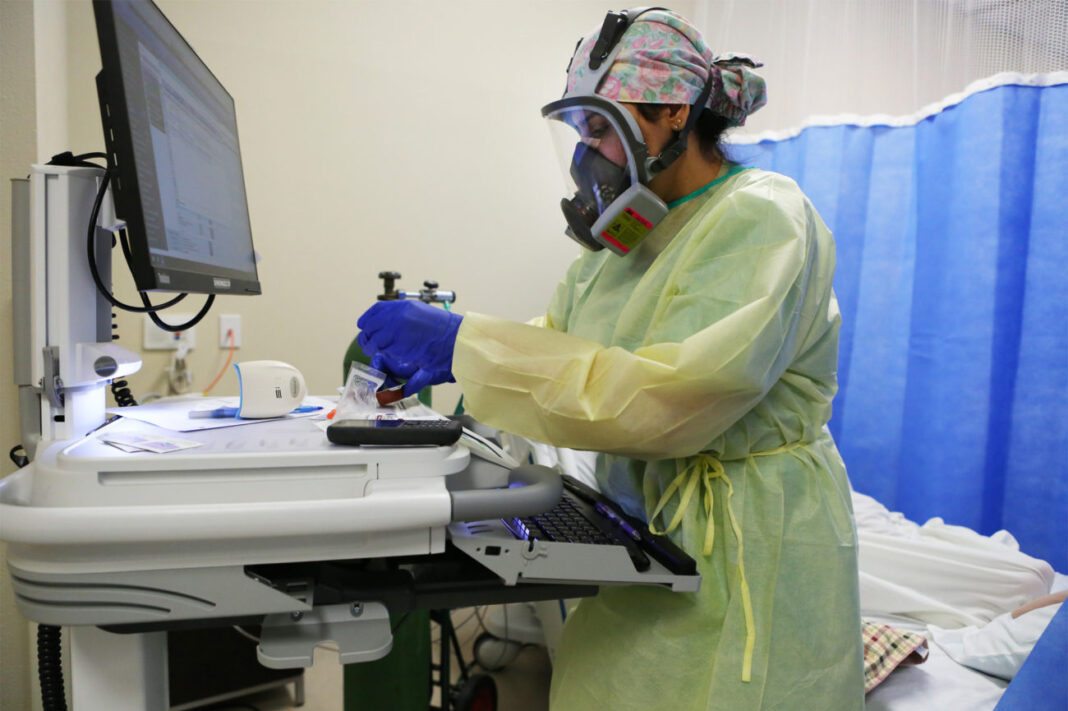The rise of COVID-19 variants across the country has changed the way healthcare providers are administering treatments to patients, including those at DHR Health.
After the U.S. Food and Drug Administration rescinded the emergency use authorization for the lone use of Bamlanivimab to treat COVID-19, DHR Health Institute for Research and Development changed their protocols so that the treatment would be used in combination with another antibody treatment for patients with mild to moderate COVID-19 symptoms.
The cause for the change was the increase in COVID-19 variant cases for which the use of Bamlanivimab, alone, was deemed ineffective, according to Dr. Sohail Rao, president and CEO of the institute.
Rao said that an average of about 20% of people were infected with a variant rather than the “wild type” which make up the remaining 80% of cases.
“The Bamlanivimab will still work, however, what the (FDA) suggested was we need to not use Bamlanivimab alone but we use it in combination with another monoclonal antibody from the same company called Etesevimab which was actually targeted against the variants,” Rao said. “So by combining the two monoclonal antibodies, we are now taking care of all the wild type as well as variant.”
Treatment with Bamlanivimab was first granted emergency use authorization by the FDA in November for patients with co-morbidities such as diabetes, hypertension, and obesity — pre-existing conditions thought to increase the risk of developing severe COVID-19 symptoms that would require hospitalization.
DHR had launched a study in November using either Bamlanivimab alone or REGN-COV2 to treat patients with mild to moderate COVID-19 symptoms, according to a news release issued by the hospital system. To date, they treated more than 270 patients who were thought to be at high risk of developing severe symptoms with one of those antibody treatments.
But because the FDA rescinded the emergency use authorization to use the treatment alone, they halted their use of Bamlanivimab in that way earlier this month, Rao said.
“Going forward we will not use Bamlanivimab alone, we will use it in combination with what the FDA has recommended which is Etesevimab,” Rao assured. “We have obtained supplies of both monoclonal antibodies and we have received (Institutional Review Board) approval. In fact, we actually have treated our first patient the day before yesterday with the combination.”




